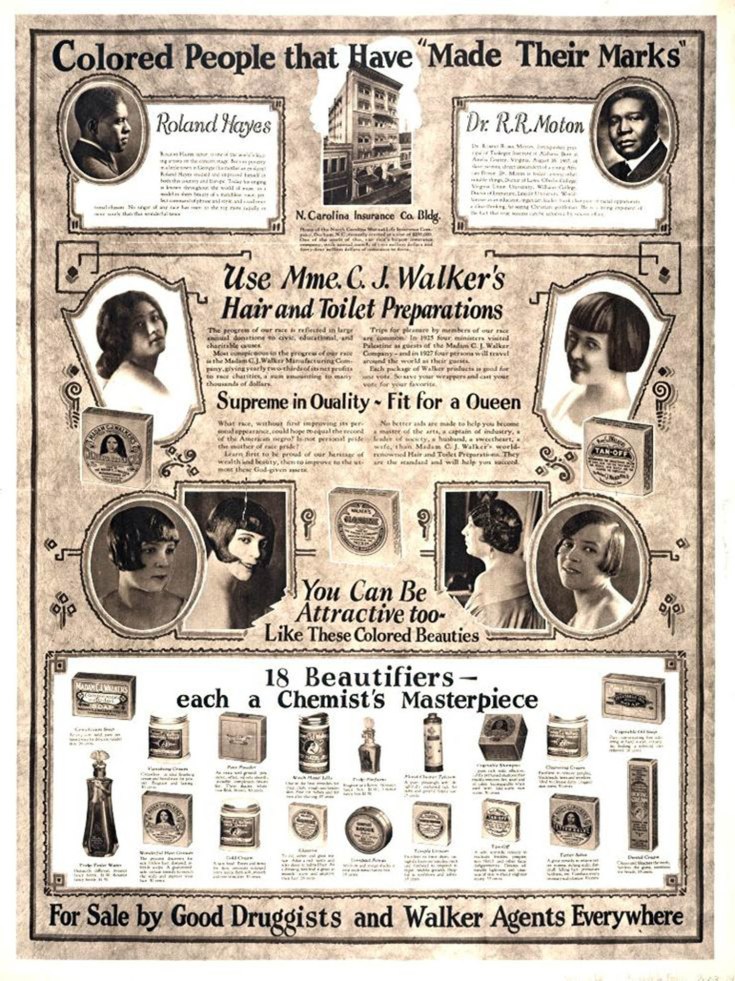While white women worked hard to make their hair wavy or curly, many African-American women worked just as hard trying to make their hair straight. Black newspapers and magazines advertised dozens of special pomades, oils, soaps, shampoos, hot irons, and combs that were intended to help relax and straighten curly or kinky hair. Madam C. J. Walker, the nation’s first black woman millionaire, developed a revolutionary system to soften and straighten black women’s hair around the turn of the century, using a combination of special hair preparations and hot irons. (1)

In 1906, she founded the Madame C. J. Walker Manufacturing Company, and later she established a Harlem-based beautician school called the Walker College of Hair Culture, which claimed to teach its hairdressing students how to straighten kinky hair without using curling irons, and promoted a secret formula that supposedly accelerated hair growth. The Walker Manufacturing Company flourished during the 1920s under the leadership of Madame Walker’s daughter, A’Lelia Walker, one of the richest and most extravagant residents of Harlem during the Jazz Age. (1)

Madame C. J. Walker realised not only that the African-American community represented a virtually untapped consumer market, but also that many black women were attracted to products that promised a more “Caucasian” appearance and, by association, the social acceptance unavailable to those with kinky hair and other so-called “African” features. (1)
SOURCES:
(1) The 1920s (American Popular Culture Through History) by Kathleen Drowne and Patrick Huber, 2004




Leave a comment